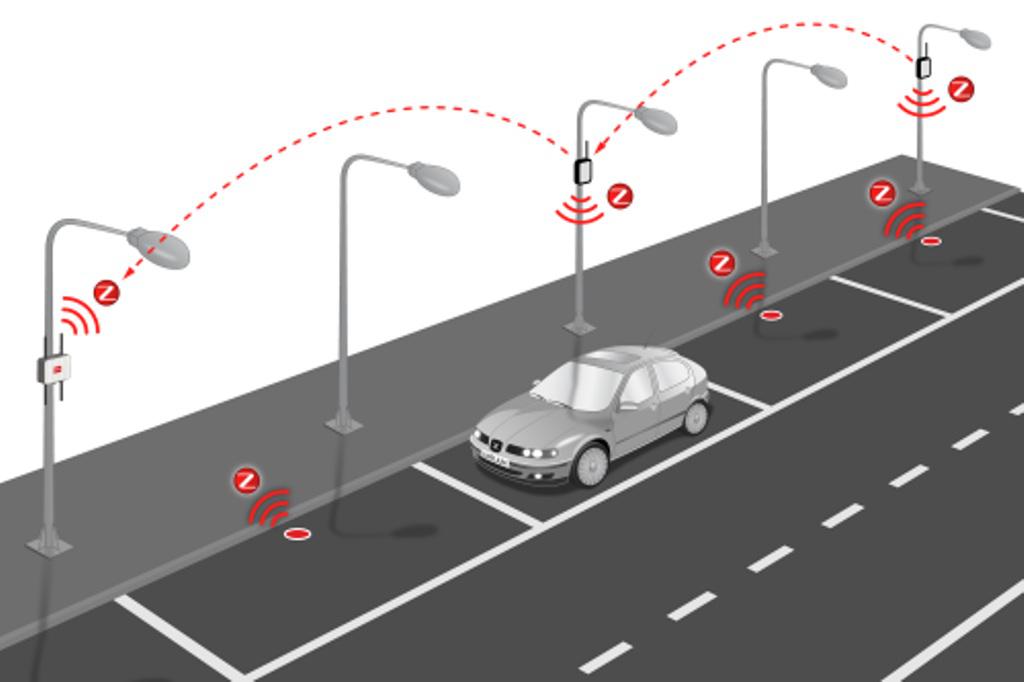
With the increasing numbers of the vehicles in a city, the parking spaces are becoming less and less. This has resulted in more traffic congestions, more wasted time and, of course, more pollution. These three are the main factors causing stress on the streets of a city, and that’s why public institutions and private companies are exploring new solutions to ease these causes, by calling for help the technology. Large European companies that invest in technology research, such as Deutsche Telekom in Germany, have started to implement certain type of platforms for a more effective management of the streets, such as Smart Parking.
Smart Parking may be defined as a system of sensors, which are incorporated in each parking slot and report in real time when that slot is empty or busy. This information is available in an app which is developed specifically for this need and can be installed in any smart device (tablet or phone); a GPS map shows the availability of the slots while you are driving. This parking platform may seem very easy. But, for the institutions to bring this platform to life, they need support form operators that have the capacity to implement this entire infrastructure. The availability of the servers where the information is archived and transmitted, the development of the app, the network maintenance as well as technical support in case of different complications are some of the key elements essential for the implementation of such projects.
In Albania, some efforts are already being made to
mediate facilitating parking platforms, such as SMS Parking, a platform
launched few months ago in the city of Tirana.
SMS Parking is a new way of payment for the usage of parking slot, through
SMSs. The advantage of this system is that the citizen saves time by skipping
the need for human assistance or waiting in line at a ticket kiosk for the
payment. Also, they may renovate the payment of the parking through an SMS,
without having to come back at the parking spot. Such projects are implemented
in the light of better utilization of the cities in smart ways, and are a proof
how technology may be interwoven with any aspect of life, by making the
every-day life of those who live in a city much easier.






